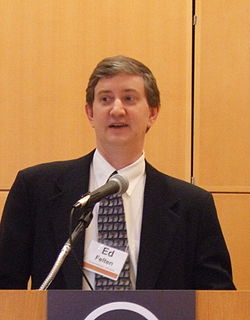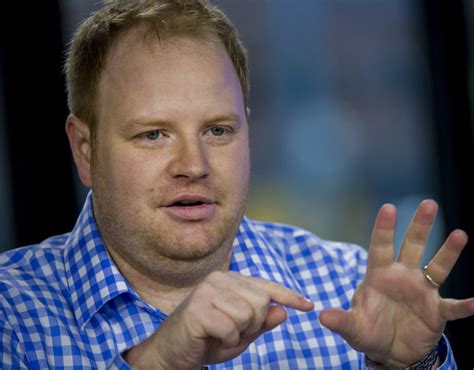A Quote by Lawrence Lessig
I think the reality is that copyright law has for a very long time been a tiny little part of American jurisprudence, far removed from traditional First Amendment jurisprudence, and that made sense before the Internet. Now there is an unavoidable link between First Amendment interests and the scope of copyright law. The legal system is recognizing for the first time the extraordinary expanse of copyright regulation and its regulation of ordinary free-speech activities.
Quote Topics
Activities
Amendment
American
Been
Before
Between
Copyright
Copyright Law
Expanse
Extraordinary
Far
First
First Amendment
First Time
Free
Interests
Internet
Jurisprudence
Law
Legal
Legal System
Link
Little
Long
Long Time
Made
Now
Ordinary
Part
Reality
Recognizing
Regulation
Scope
Sense
Speech
System
Think
Time
Tiny
Traditional
Unavoidable
Very
Very Long Time
Related Quotes
Providing free access to research papers on websites like Sci-Hub breaks so-called copyright law that was made to taboo free distribution of information on the Internet. That includes music, movies, documentaries, books, and research articles. Not everyone agrees that copyright law should exist in the first place.
I named my software 'EMAIL,' (a term never used before in the English language), and I even received the first U.S. Copyright for that software, officially recognizing me as The Inventor of Email, at a time when Copyright was the only way to recognize software inventions, since the U.S. Supreme Court was not recognizing software patents.
Under the 1998 Digital Millennium Copyright Act, Tumblr, YouTube, Reddit, WordPress, and Facebook aren't responsible for the copyright infringement of each of their millions of users, so long as they take down specific posts, videos, or images when notified by copyright holders. But copyright holders thought that wasn't good enough.
The First Amendment's language leaves no room for inference that abridgments of speech and press can be made just because they are slight. That Amendment provides, in simple words, that "Congress shall make no law . . . abridging the freedom of speech, or of the press." I read "no law . . . abridging" to mean no law abridging.
Copyright law has got to give up its obsession with 'the copy.' The law should not regulate 'copies' or 'modern reproductions' on their own. It should instead regulate uses--like public distributions of copies of copyrighted work--that connect directly to the economic incentive copyright law was intended to foster.
What I really think is that our current model of copyright is fundamentally broken. We badly need to replace it with a different system for remunerating creators, which gets it the hell out of the face of the public (who were never aware of it to begin with in the pre-internet dead tree era). Unfortunately, the current copyright model is enshrined in international trade treaty law, making it almost impossible to work around.
































